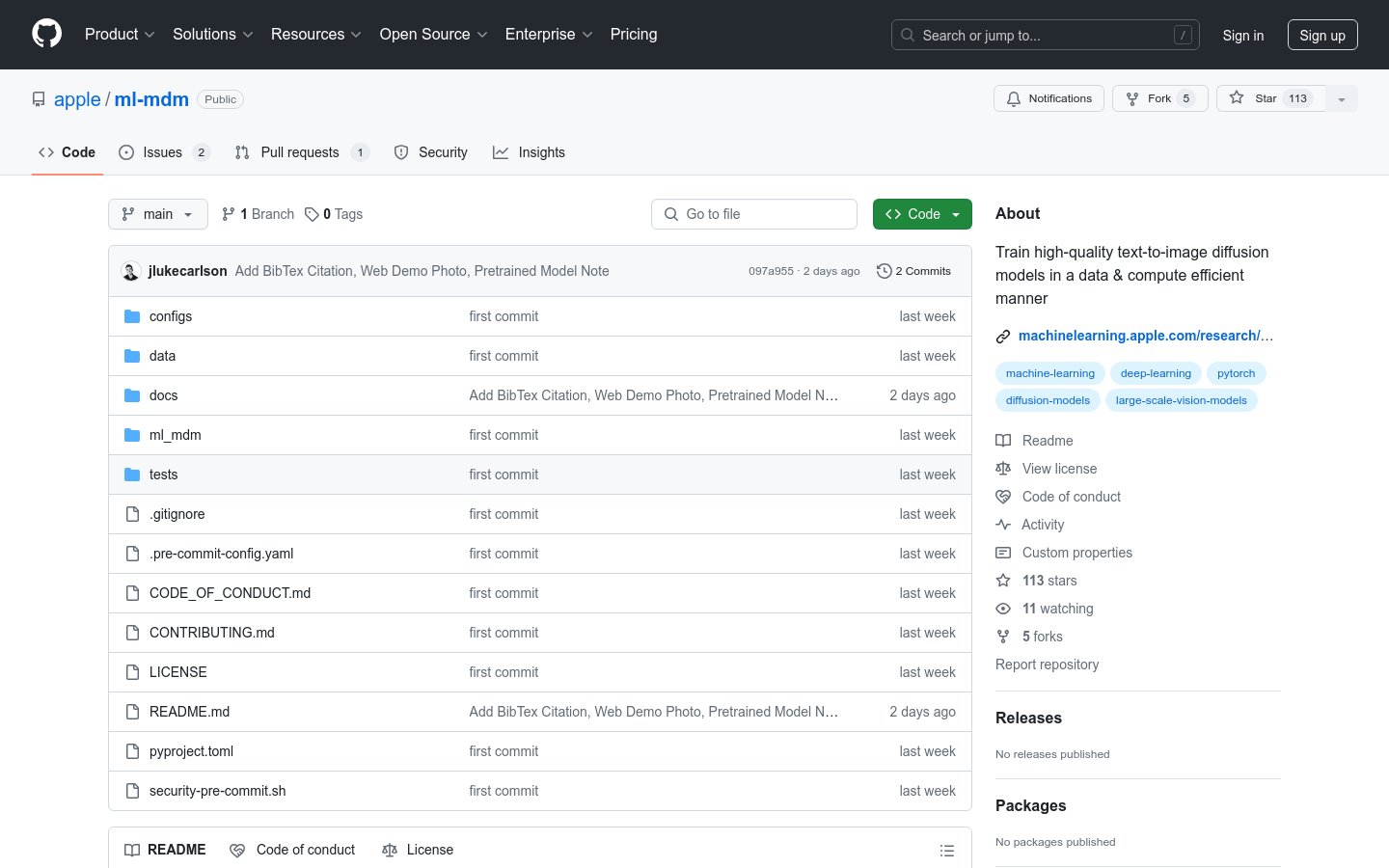

Ml Mdm
Overview :
ml-mdm is a Python package designed for the efficient training of high-quality text-to-image diffusion models. Utilizing Matryoshka diffusion model technology, it can train a single pixel-space model at a resolution of 1024x1024 pixels, demonstrating impressive zero-shot generalization capabilities.
Target Users :
The ml-mdm model is ideal for researchers and developers in the fields of machine learning and deep learning, particularly for users interested in generating high-quality images and videos. It offers a data and computationally efficient method for training diffusion models.
Use Cases
Researchers use ml-mdm to train models on the CC12M dataset, generating images that correspond to text descriptions.
Developers quickly integrate pre-trained models into their applications, providing text-to-image generation services.
Educational institutions use ml-mdm as a teaching tool to demonstrate the workings and applications of diffusion models to students.
Features
An end-to-end framework supporting high-resolution image and video synthesis.
Provides download links for pre-trained models, allowing users to easily utilize them or use them as a training starting point.
Includes a web interface demonstration, allowing users to generate images directly through a web page.
Offers detailed installation guides and explanations of the codebase structure for quick onboarding.
Includes unit tests and sample training files to ensure code robustness.
Supports custom dataset training, allowing users to train models with their own data.
How to Use
1. Install the ml-mdm library and its dependencies.
2. Download and load a pre-trained model or prepare a custom dataset for model training.
3. Use the web interface or command-line tool to input text descriptions and generate images.
4. Adjust model parameters as necessary to optimize the quality of the generated images.
5. Utilize the generated images for further research or integrate them into other applications.
6. Engage in community discussions, provide feedback on user experience, and contribute to the improvement and optimization of the model.
Featured AI Tools
Chinese Picks

Capcut Dreamina
CapCut Dreamina is an AIGC tool under Douyin. Users can generate creative images based on text content, supporting image resizing, aspect ratio adjustment, and template type selection. It will be used for content creation in Douyin's text or short videos in the future to enrich Douyin's AI creation content library.
AI image generation
9.0M

Outfit Anyone
Outfit Anyone is an ultra-high quality virtual try-on product that allows users to try different fashion styles without physically trying on clothes. Using a two-stream conditional diffusion model, Outfit Anyone can flexibly handle clothing deformation, generating more realistic results. It boasts extensibility, allowing adjustments for poses and body shapes, making it suitable for images ranging from anime characters to real people. Outfit Anyone's performance across various scenarios highlights its practicality and readiness for real-world applications.
AI image generation
5.3M













